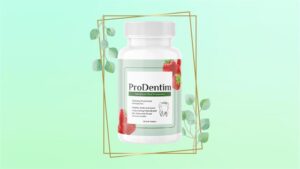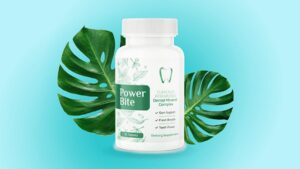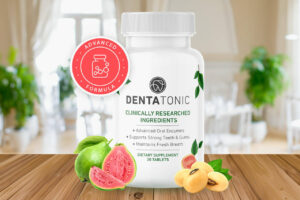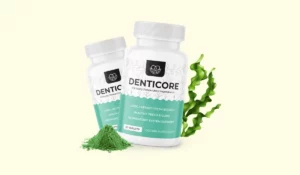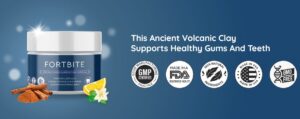A Complete Guide to Vitamins for Healthy Teeth and Gums: Enhancing Your Smile from Within
A beautiful smile begins with healthy teeth and gums. While proper oral hygiene practices such as brushing and flossing are essential, ensuring you get the right vitamins and nutrients can also play a significant role in maintaining optimal dental health.
In this comprehensive guide, we’ll explore the vitamins and minerals crucial for strong teeth and gums, along with the best dietary sources and supplements to incorporate into your routine.
In This Article
Vitamin A:
Vitamin A is essential for maintaining healthy tooth enamel and supporting overall oral health. It helps promote saliva production, which aids in washing away food particles and bacteria that can lead to tooth decay.
Additionally, vitamin A supports the health of the mucous membranes in the mouth, preventing dry mouth and promoting healing of oral tissues. Sources of vitamin A include liver, carrots, sweet potatoes, spinach, and kale.
Vitamin C:
Vitamin C is a powerful antioxidant that plays a vital role in gum health. It helps support the collagen production necessary for maintaining the integrity of gum tissue, preventing inflammation, and reducing the risk of gum disease.
Vitamin C also strengthens blood vessels, reducing the likelihood of bleeding gums. Citrus fruits, strawberries, kiwi, bell peppers, and broccoli are excellent sources of vitamin C.
Vitamin D:
Vitamin D is crucial for the absorption of calcium, a mineral essential for strong teeth and bones. Adequate vitamin D levels help prevent tooth decay and promote remineralization of enamel, protecting against cavities.
Additionally, vitamin D has anti-inflammatory properties that can help reduce gum inflammation and support periodontal health. Sunlight exposure, fatty fish like salmon and tuna, fortified dairy products, and egg yolks are sources of vitamin D.
Calcium:
Calcium is the primary mineral responsible for building strong teeth and bones. It forms the structural component of tooth enamel and helps maintain jawbone density, providing stability for teeth.
Adequate calcium intake is crucial for preventing tooth decay and maintaining overall oral health. Dairy products like milk, cheese, and yogurt are excellent sources of calcium, along with leafy greens, almonds, and fortified foods like tofu and orange juice.
Phosphorus:
Phosphorus works alongside calcium to strengthen tooth enamel and support dental health. It plays a crucial role in the formation of hydroxyapatite, the mineral complex that makes up tooth enamel, helping to maintain its strength and integrity.
Phosphorus also contributes to saliva production, which helps neutralize acids in the mouth and protect against tooth decay. Sources of phosphorus include meat, poultry, fish, dairy products, nuts, and seeds.
Vitamin K:
Vitamin K is essential for maintaining bone density and preventing tooth loss. It helps regulate calcium deposition in bones and teeth, promoting their strength and resilience.
Vitamin K also supports gum health by reducing bleeding and inflammation and promoting tissue healing.
Leafy green vegetables like kale, spinach, and Swiss chard are rich sources of vitamin K, along with broccoli, Brussels sprouts, and fermented foods like sauerkraut and natto.
Magnesium:
Magnesium is another mineral that plays a role in maintaining dental health. It helps regulate calcium levels in the body, supporting the mineralization of tooth enamel and bone density.
Magnesium also has anti-inflammatory properties that can help reduce gum inflammation and support periodontal health.
Green leafy vegetables, nuts, seeds, whole grains, and legumes are good sources of magnesium.
Zinc:
Zinc is essential for maintaining a healthy immune system and supporting wound healing, both of which are crucial for oral health.
It helps prevent plaque buildup and reduces the risk of gum disease by supporting immune function and promoting tissue repair.
Zinc also plays a role in taste perception and saliva production, contributing to overall oral health. Oysters, beef, poultry, nuts, seeds, and legumes are excellent sources of zinc.
Omega-3 Fatty Acids:
Omega-3 fatty acids have anti-inflammatory properties that can help reduce gum inflammation and support periodontal health.
They also support overall immune function, helping to prevent infections and promote healing of oral tissues. Fatty fish like salmon, mackerel, and sardines are rich sources of omega-3 fatty acids, along with flaxseeds, chia seeds, and walnuts.
Conclusion:
Incorporating a variety of vitamins and minerals into your diet is essential for maintaining healthy teeth and gums.
By ensuring adequate intake of nutrients like vitamin A, vitamin C, vitamin D, calcium, phosphorus, vitamin K, magnesium, zinc, and omega-3 fatty acids, you can support optimal oral health and enhance your smile from within.
Along with practicing good oral hygiene habits, including regular brushing, flossing, and dental check-ups, a nutrient-rich diet can help keep your teeth and gums strong and healthy for years

